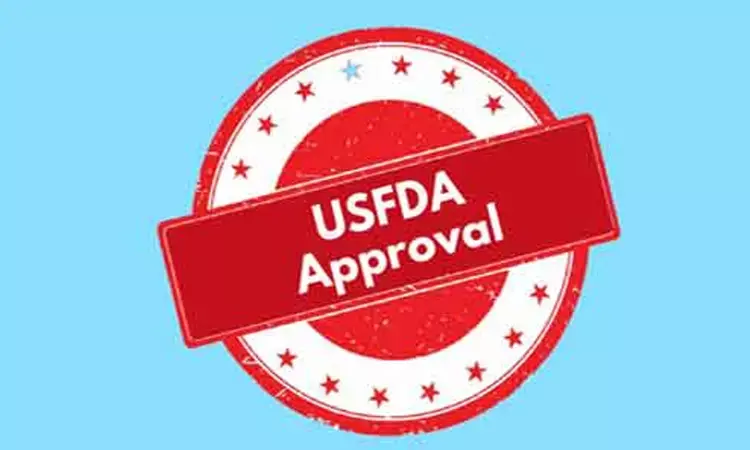- Home
- Medical news & Guidelines
- Anesthesiology
- Cardiology and CTVS
- Critical Care
- Dentistry
- Dermatology
- Diabetes and Endocrinology
- ENT
- Gastroenterology
- Medicine
- Nephrology
- Neurology
- Obstretics-Gynaecology
- Oncology
- Ophthalmology
- Orthopaedics
- Pediatrics-Neonatology
- Psychiatry
- Pulmonology
- Radiology
- Surgery
- Urology
- Laboratory Medicine
- Diet
- Nursing
- Paramedical
- Physiotherapy
- Health news
- Fact Check
- Bone Health Fact Check
- Brain Health Fact Check
- Cancer Related Fact Check
- Child Care Fact Check
- Dental and oral health fact check
- Diabetes and metabolic health fact check
- Diet and Nutrition Fact Check
- Eye and ENT Care Fact Check
- Fitness fact check
- Gut health fact check
- Heart health fact check
- Kidney health fact check
- Medical education fact check
- Men's health fact check
- Respiratory fact check
- Skin and hair care fact check
- Vaccine and Immunization fact check
- Women's health fact check
- AYUSH
- State News
- Andaman and Nicobar Islands
- Andhra Pradesh
- Arunachal Pradesh
- Assam
- Bihar
- Chandigarh
- Chattisgarh
- Dadra and Nagar Haveli
- Daman and Diu
- Delhi
- Goa
- Gujarat
- Haryana
- Himachal Pradesh
- Jammu & Kashmir
- Jharkhand
- Karnataka
- Kerala
- Ladakh
- Lakshadweep
- Madhya Pradesh
- Maharashtra
- Manipur
- Meghalaya
- Mizoram
- Nagaland
- Odisha
- Puducherry
- Punjab
- Rajasthan
- Sikkim
- Tamil Nadu
- Telangana
- Tripura
- Uttar Pradesh
- Uttrakhand
- West Bengal
- Medical Education
- Industry
Pfizer gets USFDA nod for PANZYGA to treat chronic inflammatory demyelinating polyneuropathy

New York: Pharma major, Pfizer Inc., has recently announced that the U.S. Food and Drug Administration (FDA) has approved the supplemental Biologics License Application (sBLA) for PANZYGA (Immune Globulin Intravenous [Human] – ifas 10% Liquid Preparation) to treat adult patients with a rare neurological disease of the peripheral nerves called chronic inflammatory demyelinating polyneuropathy (CIDP).
PANZYGA is the only intravenous immunoglobulin (IVIg) with two FDA-approved maintenance dosing options for CIDP, helping to meet the clinical needs of patients. PANZYGA can also be administered at infusion rates up to 12 mg/kg/min.
"Each patient with CIDP has different treatment needs, and we have found that having one approved dosing option is not always optimal," said Angela Lukin, Global President, Hospital Business Unit, Pfizer Inc. "The approval of this new indication with additional dosing options helps address an unmet patient need by providing healthcare providers with the ability to choose an approved dose that's right for patients."
CIDP is a rare disorder of the peripheral nerves characterized by gradually increasing symmetrical motor and sensory loss and weakness associated with loss of deep tendon reflexes. It is caused by damage to the covering of the nerves, called myelin. The gradual onset of CIDP can delay diagnosis by several months or even years, resulting in significant nerve damage that may limit and delay the response to therapy. Most individuals will require long term treatment; nearly a third of CIDP patients will progress to wheelchair dependence if left untreated. Early recognition and proper treatment are critical in helping patients avoid a significant amount of disability.
The approval for this new indication was based on data from a prospective, double-blind, randomized, multi-center Phase 3 study in 142 patients diagnosed with CIDP. This Phase 3 study was the first and only IVIg CIDP treatment study to evaluate more than one maintenance dosing option. Efficacy, safety, and tolerability was observed during seven maintenance infusions at three-week intervals over a six-month period. The primary efficacy endpoint was the proportion of responders in the 1.0 g/kg PANZYGA treatment arm at six months relative to baseline. A responder was defined as a patient with a decrease of at least one point in the adjusted 10-point Inflammatory Neuropathy Cause and Treatment (INCAT) disability score. The primary endpoint was met with 80% of patients in the study achieving an INCAT response with the 1.0 g/kg dose. Dose-dependent efficacy was shown by several supporting endpoints, including a 92% response in adjusted INCAT score in the 2.0 g/kg dose arm. Dose-dependent responses were also demonstrated in the 1.0 g/kg and 2.0 g/kg dose arms in grip strength, Inflammatory Rasch-built Overall Disability Scale (I-RODS) and Medical Research Council (MRC) sum scores. PANZYGA was generally well tolerated. The most common adverse reactions (>5%) across all dosing arms were headache (15%), fever (14%), dermatitis (10%), and blood pressure increase (8%). During the study 11 patients (8%) received premedication.
PANZYGA was approved by the U.S. FDA in 2018 for the treatment of primary immunodeficiency (PI) in patients two years of age and older and chronic immune thrombocytopenia (cITP) in adults.
Pfizer Inc. and Octapharma AG are parties to a license agreement pursuant to which Pfizer is granted rights to market and commercialize PANZYGA in the U.S. Octapharma retains exclusive rights to commercialize this product globally outside of the U.S.
Ruchika Sharma joined Medical Dialogue as an Correspondent for the Business Section in 2019. She covers all the updates in the Pharmaceutical field, Policy, Insurance, Business Healthcare, Medical News, Health News, Pharma News, Healthcare and Investment. She has completed her B.Com from Delhi University and then pursued postgraduation in M.Com. She can be contacted at editorial@medicaldialogues.in Contact no. 011-43720751


